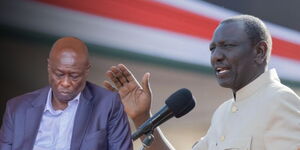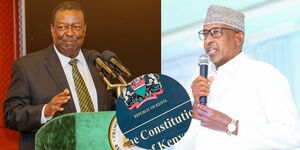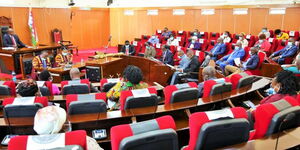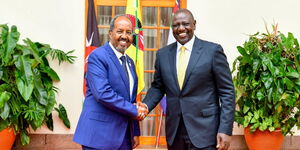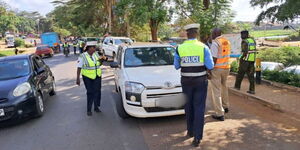Mumias East Member of Parliament Peter Salasya on Saturday, May 3, challenged former Prime Minister Raila Odinga to leverage his ‘power’ to stop a push by the National Assembly to change the Constitution by entrenching Funds such as the National Government Constituency Development Fund (NG-CDF) into the Constitution.
Through a statement, Salasya tasked Odinga with attempting to halt the kick-off of public participation on the issue, which begins on Monday, May 5, citing his newfound closeness to power and President William Ruto.
“If Raila thinks he owns this country let him stop NG-CDF public participation next week, if he is truly another arm of the government let him stop," Salasya charged.
Salasya issued the challenge while simultaneously expressing full confidence that the Constitution of Kenya (Amendment) Bill, 2025—which contains key proposals behind the push—will sail through in Parliament.
“We are going to put NG-CDF in the Constitution whether he likes it or not. This is plain truth. We are going to show Raila he is an ordinary citizen with one vote, and the majority have said NG-CDF is here to stay,” he asserted.
The popular MP’s stance seemingly stems from Raila recently speaking out against plans to entrench the lucrative kitty into the Constitution.
Speaking in Thika on Friday, May 2, during the funeral service of Dr. Francis Ngaru, Raila said MPs are now hellbent on amending the Constitution to wrestle control of the NG-CDF from governors.
"Parliament should not try to change the Constitution because of narrow ends. The Constitution that we brought here brought devolution; devolution needs to be defended," Raila said.
The Bill, sponsored by Ainabkoi MP Samuel Chepkonga and his Rarieda counterpart Otiende Amollo, aims to entrench NG-CDF, the Senate Oversight Fund, and the National Government Affirmative Action Fund (NGAAF) into law.
However, the inclusion of the NG-CDF into the Constitution has been the subject of legal tussles after the High Court declared it unlawful in 2024. The fund was established to address poverty and regional development imbalances by allocating a minimum of 2.5 per cent of the national government's annual revenue to counties for development projects in each constituency.
Yesterday, the National Assembly was taken to court by Katiba Institute and other civil society organisations over their amendment plans, with a petition filed against the same.
In its petition, Katiba Institute argued that the entire Bill is constitutionally superfluous, and the funds it seeks to create are inconsistent with the letter and spirit of the Constitution.


